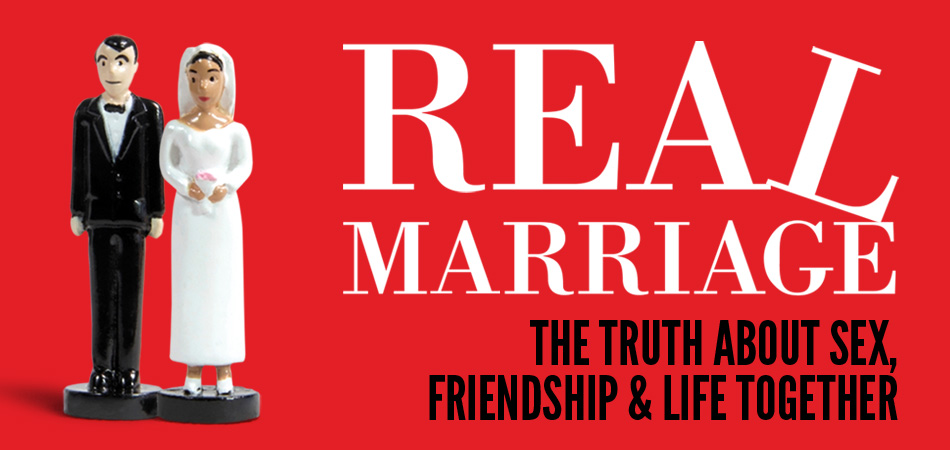This was the first chapter that the book went flying. Honestly, I’m surprised I got to chapter three before that happened. This chapter was just … frustrating as hell to read. There’s so many problems with this chapter, and I’m going to spend my time today focusing on one of them, but it is important to at least point out a few other glaring problems.
First, he depends on a single researcher to make his arguments. 22 of his 29 citations come from W. Bradford Wilcox. I looked Wilcox up and you can tell from his list of publications that he has an obvious agenda, and he thinks “soft patriarchy” is a fine idea– he also does a lot of mixing up of correlation and causation in his conclusions. Wilcox is the head of the National Marriage Project, an organization that has a history of misrepresenting data in order to make their point. That Mark Driscoll only cites one person who agrees with him so exactly on everything is … awfully convenient. At best, it’s ridiculously shoddy research (and parroting Wilcox is basically all that happens from pages 57 to 63).
The second glaring problem with this chapter is the basis for a lot of his assumptions is his own personal experience. On some level we all do this, mostly unconsciously. What else are we supposed to form some of our assumptions on, if not our lives? However, when you’re a rich white American evangelical, your personal lived experience is going to be one of enormous privilege, and assuming that your mind-boggling advantages and opportunities is normal for everyone else will inevitably be a problem. Things that work for a neurotypical cishet able-bodied white Christian man who’s paid heaping amounts of money to yell curse words and insult people every week will not work for everyone, but he consistently does that through this entire chapter, mostly by demonizing men who don’t act exactly like an idealized version of himself (best examples of this are on pages 45-48).
However, the biggest problem is Mark’s main argument that complementarianism is the only possible theological conclusion and the only possible solution to abusive marriages.
The most rage-inducing thing about this chapter is how many times Mark describes abusive marriages, but not even once uses the word “abusive” to describe it:
Do you ever hit her? Do you ever shove her? Do you ever push her? Do you ever grab her, restrain her? Do you ever raise a hand and threaten her? Do you ever threaten her with physical violence? Do you give her that look, that pierced, glazed, angry, don’t-push-it-now’s-a-good-time-to-shut-up look? Do you tell her, “I’m getting very angry; you should just shut up right now or it’s gonna go bad for you? Do you get right in her face? Do you intimadate her with your presence? Do you play the role of the bully to push your wife around? (49)
What he’s just described is physically abusive. But, to Mark, this is simply “bullying.”
How do you speak toy our wife? Do you have nasty nicknames for her? Do you raise your voice? Do you threaten her? Do you give backhanded compliments? … If you start saying critical, cutting, demeaning, cruel, or disrespectful things about your wife, your children will be left in the awful position of choosing between their mother and father. Invariably some of your children will despise their own mother and speak evil of her in an effort to remain loyal to their father. (51)
First: that is verbal abuse. Second: Invariably? What the hell? But, worse than describing abusive acts and then minimizing them, he goes on to do this:
You honor your wife physically by being safe for her, protective of her, and tender with her. In this way she will see your strength as a blessing instead of danger … which means he needs to honor and protect [her weakness] rather than exploit it.
That is benevolent sexism (that link is truly excellent reading, I highly recommend it). There’s a few different forms of sexism: hostile, casual, and benevolent. Hostile sexism is what a lot of the “not all men” types are thinking about when they’re disagreeing with feminists, and, honestly, it used to be commonplace, but other forms of sexism are taking its place. Hostile sexism is what you get when you read Elliot Rodger’s manifesto. Casual sexism is “everyday sexism.” It’s cat calling and jokes about kitchens and sandwiches.
Benevolent sexism, though, is the belief that women are weak, innocent, home-guarding angels that need to be put on a pedestal and protected. It seems innocuous enough on its face; it’s chivalry and nobility and treating women right. Benevolent sexists spend a lot of time talking about how much they respect women, and how much they value women, and how men should honor women by opening up their pickle jars and putting their coats in puddles and treating them like “crystal goblets” (49).
However, the basic assumption of benevolent sexism is that women need to be protected by the men who own them. Daughters are protected by fathers, wives are protected by husbands, and they “protect” women from the big ugly nasty world that just wants one thing from us. In Mark’s words: “We are to be tough in carving out safety and protection for women and children in a world that abuses them” (44).
Missing from this framework is the understanding that women deserve respect because we are people. For example, Mark talks about how Grace was “overwhelmed with the demands of young children,” but instead of saying that “so I decided to shoulder my fair share of the responsibility, after all they’re my children, too, and I’m their parent,” he says that he started “helping out” as an act of service. Grace, in Mark’s head, is the woman-thing that he needs to protect and serve, not the person who is an equal partner in their marriage and who deserves to be treated with respect.
Benevolent sexism might initially seem like it’s not harmful, but it is. Nothing that assumes that women are intrinsically weak and vulnerable can be good. Historically speaking, the view that women are “weak and vulnerable” has been the main argument behind some of the most flagrantly misogynistic church teachings.
Benevolent sexism is just hostile sexism masquerading as a nice guy.










